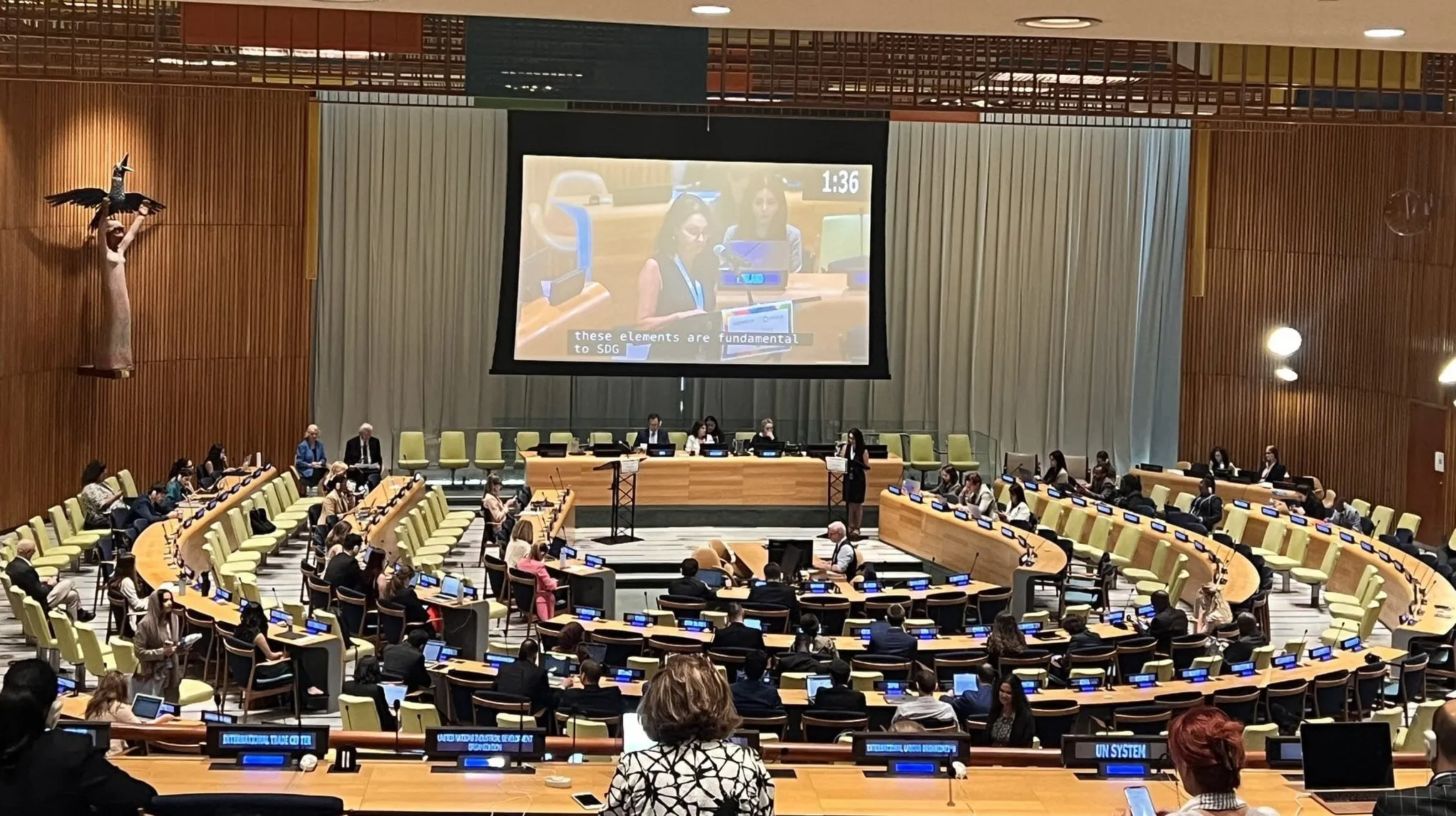Statement at the General Debate of the High-Level Political Forum 2024

High-Level Political Forum
Ministerial Segment
“General Debate”
15-17 July 2024
Statement by the International Institute for
Democracy and Electoral Assistance (IDEA)
Excellencies,
International IDEA would like to emphasize the crucial role of democratic institutions, access to justice, peace and the democratic principles of inclusion, accountability and transparency for the achievement of the 2030 Agenda. Underpinned by human rights principles, they form the basis for SDG 16, which is pivotal for realizing the Sustainable Development Goals (SDGs). When democratic institutions are fragile, weakened or undermined, it impacts not only the achievement of SDG 16, but the entire 2030 Agenda.
A newly published report by International IDEA confirms clear linkages between SDG 16, democratic governance and the 2030 Agenda, particularly for the goals related to poverty, zero hunger, health, education, gender equality, clean water and sanitation, economic growth, reduced inequalities, sustainable cities, and climate action. Our findings underscore the crucial role of rights, participation, representation and the rule of law in attaining sustainable development.
We would like to highlight four key findings of this report.
First, the report finds that countries with stronger institutions and less corruption tend to have better poverty reduction outcomes. Evidence shows that investments in governance can significantly mitigate poverty and that strengthening institutions and reducing corruption ensure that economic benefits are distributed more equitably, thus supporting vulnerable populations.
Second, rule of law and transparent, accountable, and participatory governance enhances environmental oversight, enforcement and the effective implementation of environmental policies. It provides a stable legal environment, essential for long-term investments in green technologies and infrastructure. It also ensures that environmental regulations are applied consistently and fairly, holding polluters accountable and deterring future violations. Democracies tend to perform better on climate change mitigation, producing more ambitious climate policies and delivering on them.
Third, meaningful participation of women in decision-making and peace processes is associated with less violence and longer-lasting peace. Democracies that ensure women’s representation in political processes tend to perform better in various dimensions of gender equality. Democracies generally deliver better outcomes for citizens, including women, due to accountability mechanisms that foster gender-sensitive policies.
Lastly, transitioning to democracy leads, on average, to a more than 100 per cent increase in social protection spending. Moreover, improved access to information, transparency, and accountability in democracies helps improve equitable access basic services.
Excellencies,
Next to nothing in the 2030 Agenda –from tackling poverty to providing good healthcare, from improving education to advancing gender equality, from accelerating economic growth to reducing inequalities, from confronting the climate crisis to creating sustainable cities—will be achieved if SDG 16 fails. Therefore, International IDEA urges Member States to focus on progress towards SDG 16 as a key enabler for the attainment of the 2030 Agenda.
I thank you.